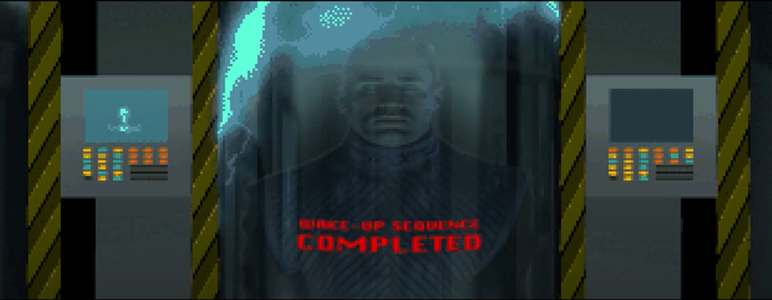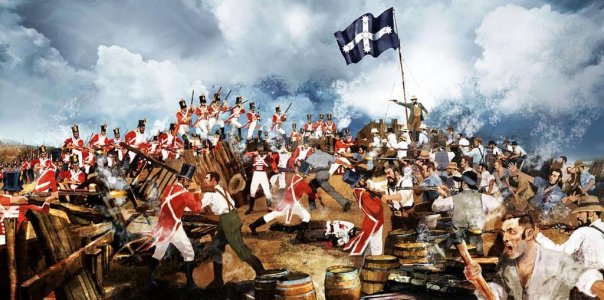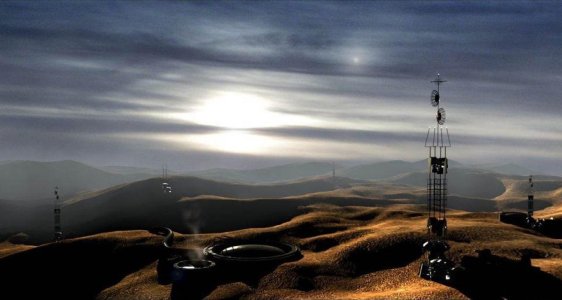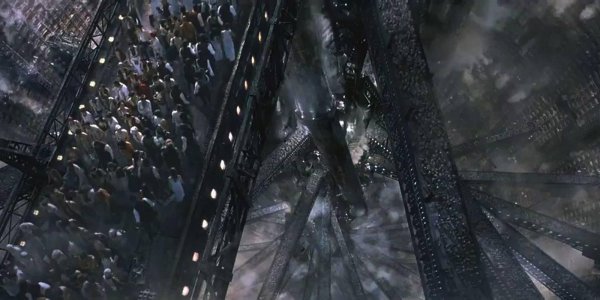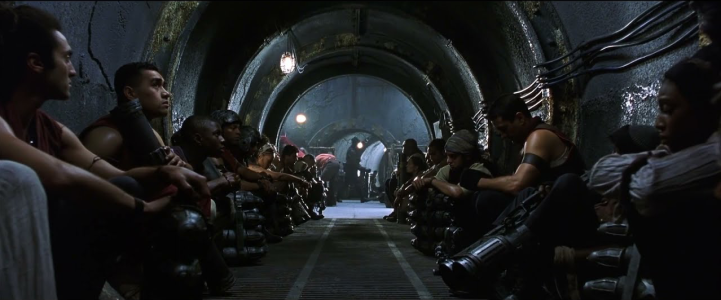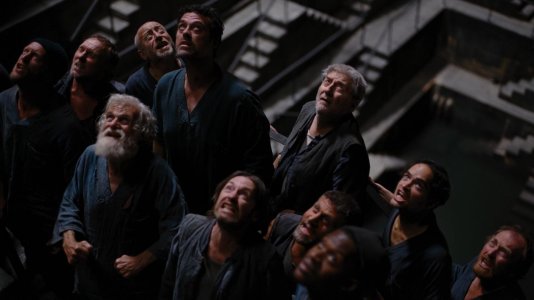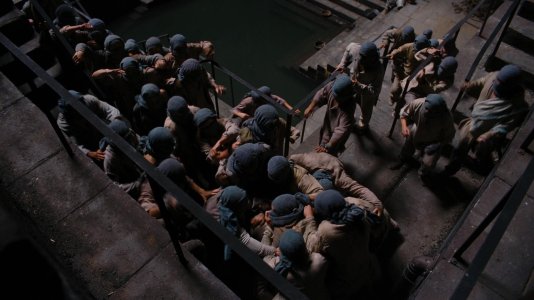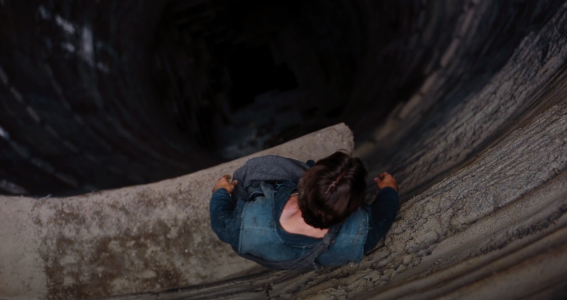MysticWind
Warlord
- Joined
- Dec 25, 2008
- Messages
- 108
An expanded version of the A House United scenario where the UNS Unity narrowly avoids disaster and arrives at Planet undivided. Since I like melding SMAC with C:BE and other similar continuities, this is similar to my Civilizations Beyond Chiron merged continuity, but with somewhat reimagined characters.
SMAC: One Big Happy Family
United Landing
No one’s entirely sure how it all went down: the blackbox fragments sifted from the central datacore indicated anomalous network activity shortly before a micrometeorite struck the Bussard ramjet scoop, grievously damaging the great ship and sending shockwaves rattling through its immense superstructure. Mere moments prior to impact, this unexpected data burst accompanied mysterious, minute adjustments to the Unity’s bearing and course.
Had the cosmic pebble, nicknamed “Hydra”, hit the ship at its original location, an entire cryobay might have been lost, as well as untold damage to the fusion drive. It is unknown what person or entity made this change; the captain and the astrogator were both in cryosleep, and the master computer itself did not seem to have detected Hydra until impact.
Officers and critical crew automatically awoke as per protocol. The Chief Science Officer quickly surmised that while the exterior damage was extensive, it was repairable, failing to jeopardize the ship’s deceleration towards Chiron. But time was of the essence while the ship bled at 11% c, threatening further deterioration as electrical systems shorted and hull was on the verge of breaking. This war room was interrupted by the arrival of a U.N. Security Force lieutenant and over four dozen security personnel, escorted by a platoon of peacekeepers.
When asked why this large assortment of fighting men and women had been roused for a noncombat emergency, the Force Commander was at a loss for words, but replied that his immediate team had awoken shortly after the emergency. Perhaps it was yet another glitch burned from the micrometeor collision. They had only finished arming and armoring themselves when they had detected the horde of security heading for the command center, and had decided to intervene. Nodding, the captain next turned to this seemingly random detachment of security officers and asked what their business was at the bridge, never mind why they had also been awoken out of turn.
Thinking quickly, the lieutenant offered her officers as a labour battalion to assist with the repairs. Along with the blue berets, they dashed across the vessel, sealing breaches and fixing broken wiring under close supervision by the science team and the engineers. Thus was born the legacy of the Spartan Work Corps, whose exploits during Landing would make their leader a hero throughout the colonies.

The long sleep
It has been seven decades since mankind has arrived at Planet. The original 108,000 passengers have disembarked the Unity in staggered batches, gradually awakening from cryo to avoid overwhelming the mission’s meager supplies. Some hibernated aboard the ship in orbit, watched over by the same “shippies” who performed orbital scans to support those settling groundside. Semi-decadal rotations ensured that no one slept through too many events. But refreezing always came with its share of medical risks, potentially producing profound damage to body and mind. And there was always rumor of corruption that expedited the passage of some to Chiron ahead of others, allowing them to stake out a greater claim of the new society earlier than others.
Such gossip obscures how truly difficult life on Planet is. Unbreathable air, nitrate-poisoned water, poor alumina-rich soil, and dangerously hostile wildlife all make settlement an unenviable affair. Awakened colonists struggled to assemble rudimentary shelter and to scratch subsistence agriculture amidst frequent mindworm incursions. While the Chief Botanist’s relocated hydroponics bays provided a source of fresh produce, many of the Earth exiles yearned for the common foodstuffs and confectionaries of their lost planet. They often went back to the landing pods and jostled awake those who had been brought down to Chiron still sleeping, forcing them to tame the land while they returned to blissful hibernation, despite the risks.
But the years started coming and they didn’t stop coming, and under the watchful eyes of their venerable leader, the settlements grew. From the initial landfall at Unity City, more and more bases sprouted like xenofungus fields across Planet. After the first mission decades of simple survival, research in bio-engineering have paved the road to genetic treatments extending the lifespan of the colonists to greater and greater lengths. If they managed to survive the mindworm attacks and spore storms, that is.

Colony at the crossroads
Now, as the final landing pods arrive at Earthrise Base, the last of the original passengers have awakened to join Centauri society. But not all is well with humanity’s remnants. Even as the mission leader moves towards retirement, his captaincy finally going down with the ship (too large to land and its useful parts stripped and brought down to the colonies, the UNS Unity is due for a controlled crash into an uninhabited corner of Planet), the mission’s future moves into an uncertain direction. His subordinates vie for control, each bringing their own idiosyncratic worldview to the Unity diaspora. Outside the base walls, the xenofauna swarm restlessly, upset at the human presence offending their ecosystems. And the stars above glitter with strange and alien movement…

SMAC: One Big Happy Family
United Landing
No one’s entirely sure how it all went down: the blackbox fragments sifted from the central datacore indicated anomalous network activity shortly before a micrometeorite struck the Bussard ramjet scoop, grievously damaging the great ship and sending shockwaves rattling through its immense superstructure. Mere moments prior to impact, this unexpected data burst accompanied mysterious, minute adjustments to the Unity’s bearing and course.
Had the cosmic pebble, nicknamed “Hydra”, hit the ship at its original location, an entire cryobay might have been lost, as well as untold damage to the fusion drive. It is unknown what person or entity made this change; the captain and the astrogator were both in cryosleep, and the master computer itself did not seem to have detected Hydra until impact.
Officers and critical crew automatically awoke as per protocol. The Chief Science Officer quickly surmised that while the exterior damage was extensive, it was repairable, failing to jeopardize the ship’s deceleration towards Chiron. But time was of the essence while the ship bled at 11% c, threatening further deterioration as electrical systems shorted and hull was on the verge of breaking. This war room was interrupted by the arrival of a U.N. Security Force lieutenant and over four dozen security personnel, escorted by a platoon of peacekeepers.
When asked why this large assortment of fighting men and women had been roused for a noncombat emergency, the Force Commander was at a loss for words, but replied that his immediate team had awoken shortly after the emergency. Perhaps it was yet another glitch burned from the micrometeor collision. They had only finished arming and armoring themselves when they had detected the horde of security heading for the command center, and had decided to intervene. Nodding, the captain next turned to this seemingly random detachment of security officers and asked what their business was at the bridge, never mind why they had also been awoken out of turn.
Thinking quickly, the lieutenant offered her officers as a labour battalion to assist with the repairs. Along with the blue berets, they dashed across the vessel, sealing breaches and fixing broken wiring under close supervision by the science team and the engineers. Thus was born the legacy of the Spartan Work Corps, whose exploits during Landing would make their leader a hero throughout the colonies.
The long sleep
It has been seven decades since mankind has arrived at Planet. The original 108,000 passengers have disembarked the Unity in staggered batches, gradually awakening from cryo to avoid overwhelming the mission’s meager supplies. Some hibernated aboard the ship in orbit, watched over by the same “shippies” who performed orbital scans to support those settling groundside. Semi-decadal rotations ensured that no one slept through too many events. But refreezing always came with its share of medical risks, potentially producing profound damage to body and mind. And there was always rumor of corruption that expedited the passage of some to Chiron ahead of others, allowing them to stake out a greater claim of the new society earlier than others.
Such gossip obscures how truly difficult life on Planet is. Unbreathable air, nitrate-poisoned water, poor alumina-rich soil, and dangerously hostile wildlife all make settlement an unenviable affair. Awakened colonists struggled to assemble rudimentary shelter and to scratch subsistence agriculture amidst frequent mindworm incursions. While the Chief Botanist’s relocated hydroponics bays provided a source of fresh produce, many of the Earth exiles yearned for the common foodstuffs and confectionaries of their lost planet. They often went back to the landing pods and jostled awake those who had been brought down to Chiron still sleeping, forcing them to tame the land while they returned to blissful hibernation, despite the risks.
But the years started coming and they didn’t stop coming, and under the watchful eyes of their venerable leader, the settlements grew. From the initial landfall at Unity City, more and more bases sprouted like xenofungus fields across Planet. After the first mission decades of simple survival, research in bio-engineering have paved the road to genetic treatments extending the lifespan of the colonists to greater and greater lengths. If they managed to survive the mindworm attacks and spore storms, that is.
Colony at the crossroads
Now, as the final landing pods arrive at Earthrise Base, the last of the original passengers have awakened to join Centauri society. But not all is well with humanity’s remnants. Even as the mission leader moves towards retirement, his captaincy finally going down with the ship (too large to land and its useful parts stripped and brought down to the colonies, the UNS Unity is due for a controlled crash into an uninhabited corner of Planet), the mission’s future moves into an uncertain direction. His subordinates vie for control, each bringing their own idiosyncratic worldview to the Unity diaspora. Outside the base walls, the xenofauna swarm restlessly, upset at the human presence offending their ecosystems. And the stars above glitter with strange and alien movement…











